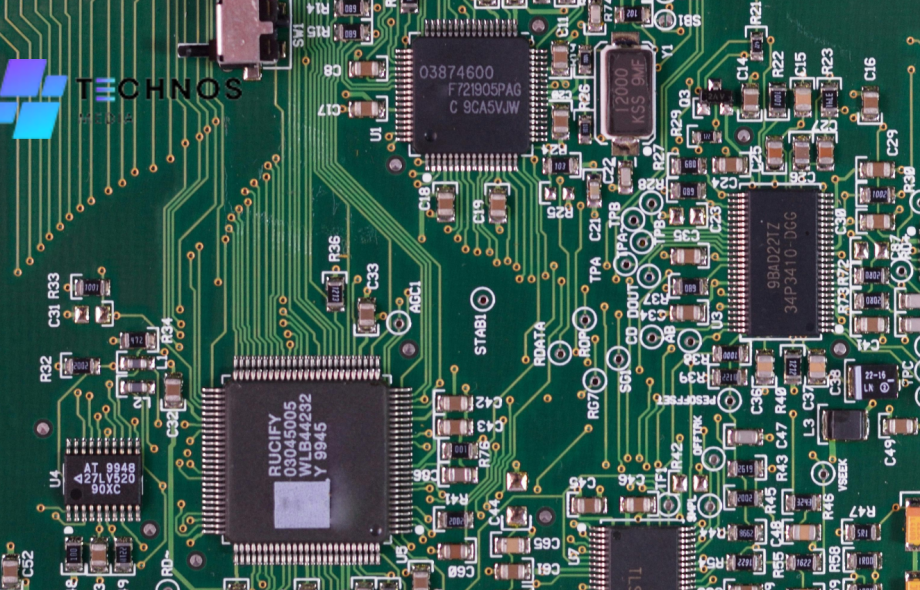Introduction
In today’s digital world, cybersecurity threats are more sophisticated than ever. Organizations and individuals face increasing risks of data breaches and cyberattacks. But is hardware technology important for cybersecurity? The answer is a definite yes. While software-based solutions provide critical protection, hardware security adds an extra layer of defense against cyber threats.
Cybercriminals constantly find ways to exploit vulnerabilities in software. However, robust hardware security can mitigate these risks. By integrating hardware-based protection, businesses can safeguard sensitive data and maintain system integrity. Let’s explore the role of hardware technology in modern cybersecurity.
Understanding Hardware Security in Cybersecurity
What Is Hardware Security?
Hardware security involves using physical devices and components to enhance cybersecurity measures. Unlike software security, which relies on code to protect data, hardware security focuses on protecting the physical infrastructure of devices and networks.
Key Hardware Components for Cybersecurity
Some essential hardware components that strengthen cybersecurity include:
Trusted Platform Modules (TPM): Secure cryptographic processors that store sensitive information like encryption keys.
Hardware Security Modules (HSM): Dedicated devices that protect encryption keys and secure transactions.
Secure Boot Mechanisms: Ensure that the operating system loads only trusted software at startup.
Biometric Authentication Devices: Fingerprint scanners and facial recognition improve user authentication security.
Physical Security Keys: USB-based keys enhance two-factor authentication and prevent unauthorized access.
Why Is Hardware Technology Crucial for Cybersecurity?
1. Enhanced Protection Against Cyber Threats
Hardware-based security solutions are more challenging for attackers to bypass. Software vulnerabilities can often be exploited, but hardware provides a more resilient layer of defense.
2. Stronger Encryption and Data Security
Hardware-based encryption is more secure than software encryption. Secure chips like TPMs and HSMs store encryption keys separately from the main system, reducing the risk of unauthorized access.
3. Improved Identity Verification
Weak passwords are a significant cybersecurity risk. Hardware solutions like biometric authentication and security keys provide stronger identity verification methods.
4. Defense Against Physical Attacks
Cybersecurity isn’t just about software-based threats. Hardware security measures prevent unauthorized physical access and tampering, ensuring that system integrity remains intact.
5. Resistance to Malware and Zero-Day Exploits
Many cyber threats, such as malware and zero-day attacks, exploit software vulnerabilities. Hardware-based protections operate at a lower system level, making it harder for attackers to exploit weaknesses.
How Hardware and Software Work Together in Cybersecurity
Hardware and software security must complement each other for optimal protection. Some key ways they work together include:
Software updates address security flaws, while hardware ensures deeper system protection.
Antivirus software detects malware, while TPMs protect encryption keys from unauthorized access.
Firewalls monitor network activity, while hardware security prevents unauthorized booting and access.
The Risks of Relying Solely on Software Security
Common Software-Based Cyber Threats
Phishing Attacks: Hackers trick users into providing confidential data.
Ransomware: Malicious software encrypts files and demands ransom for decryption.
Zero-Day Exploits: Attackers exploit unknown software vulnerabilities before they are patched.
Malware Infections: Viruses and spyware compromise sensitive information.
Without hardware-based security, these threats become more dangerous. Software security is essential, but hardware security ensures a more comprehensive defense strategy.
Industries That Benefit from Hardware Cybersecurity
1. Financial Services
Banks and financial institutions require high-level security for transactions. Hardware security modules (HSMs) protect against fraud and data breaches.
2. Healthcare
Medical data is highly sensitive. Secure biometric authentication and encrypted storage help safeguard patient information from cyber threats.
3. Government and Defense
Government agencies rely on secure boot mechanisms and hardware encryption to protect national security data from cyber espionage.
4. E-Commerce and Retail
Secure payment processing is crucial for online retailers. Hardware encryption ensures that customer data remains protected.
Best Practices for Implementing Hardware Security
1. Invest in Secure Hardware Components
Use devices with built-in security features like TPMs and secure boot mechanisms.
Choose reputable vendors for hardware procurement.
2. Use Multi-Factor Authentication (MFA)
Implement security keys or biometric authentication to enhance security.
Avoid relying solely on passwords.
3. Encrypt Data with Hardware-Based Solutions
Store encryption keys in dedicated hardware rather than the main system.
Use hardware security modules for sensitive transactions.
4. Strengthen Network Security
Deploy firewalls with built-in hardware security features.
Implement network devices with intrusion detection capabilities.
5. Keep Firmware and Hardware Updated
Regularly update firmware to patch security vulnerabilities.
Upgrade outdated hardware that lacks modern security protections.
Future Trends in Hardware Security for Cybersecurity
1. AI-Driven Hardware Security
Artificial intelligence enhances hardware security by detecting threats in real time. AI-powered chips can analyze cyber threats and respond proactively.
2. Quantum Computing and Cybersecurity
Quantum computing is set to challenge traditional encryption methods. Future hardware security solutions will need to be quantum-resistant to ensure long-term data protection.
3. Securing the Hardware Supply Chain
Hardware supply chain attacks are increasing. Stricter manufacturing security controls will help prevent compromised hardware from reaching consumers.
4. IoT Security Advancements
With the rise of IoT devices, new hardware security solutions will focus on protecting interconnected systems from cyber threats.
Conclusion
So, is hardware technology important for cybersecurity? The answer is clear: hardware security plays a vital role in protecting against cyber threats. While software security is essential, it is not enough on its own.
By integrating hardware security measures such as secure boot, encryption modules, and biometric authentication, businesses and individuals can significantly strengthen their cybersecurity defenses. As cyber threats evolve, the importance of hardware security will only continue to grow. A robust cybersecurity strategy must combine both hardware and software protection to ensure comprehensive security against modern cyber threats.

Service/Product Details:
https://technosmedia.com/technology/is-hardware-technology-important-for-cybersecurity/











